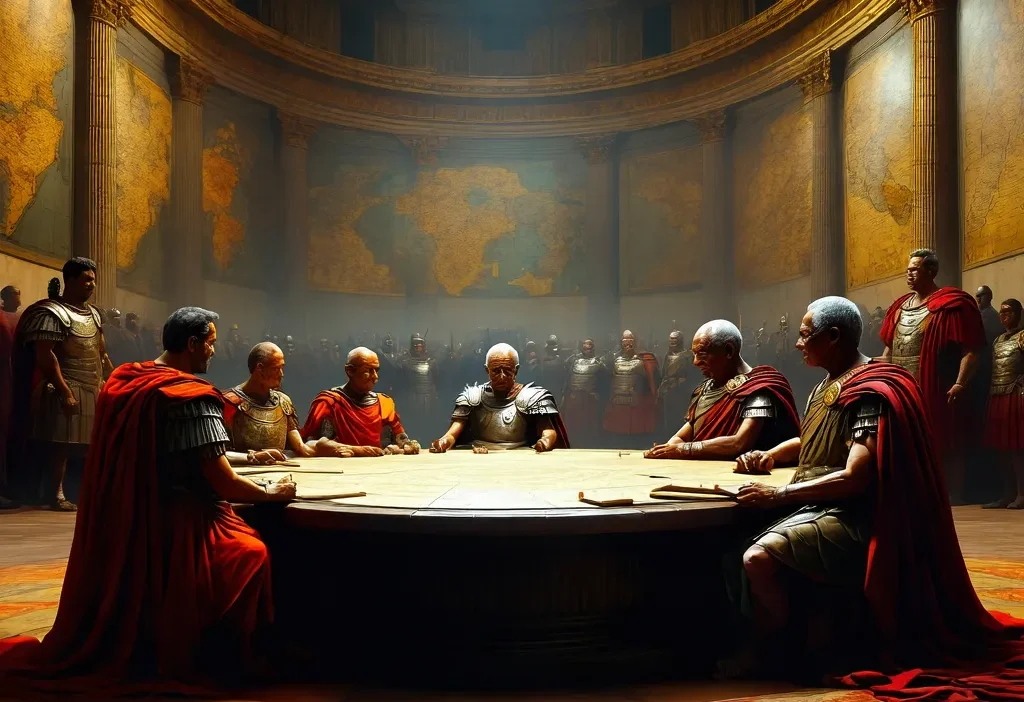7 Leadership Lessons from History’s Greatest Leaders
Leadership is not confined to modern times. Throughout history, some of the most influential leaders have left indelible marks on humanity, offering timeless lessons that still resonate today. Whether you’re managing a team or running a country, these historical insights can provide valuable guidance. Let’s dive into seven leadership lessons from legendary figures whose legacies continue to inspire.
1. Lead by Example: Julius Caesar
Julius Caesar, the Roman general and statesman, understood the power of leading by example. He didn’t ask his soldiers to do something he wasn’t willing to do himself. This approach built trust and loyalty within his legions. In modern terms, this means rolling up your sleeves and showing commitment. If you expect excellence from your team, you must embody it first.
2. Visionary Thinking: Napoleon Bonaparte
Napoleon’s rise to power was fueled by his ability to see the bigger picture. He wasn’t just fighting battles; he was shaping the future of Europe. As a leader, having a clear vision is crucial. It provides direction and motivates your team to work towards a shared goal. Without a vision, you’re just reacting to circumstances rather than creating them.
3. Adaptability: Queen Elizabeth I
Facing numerous threats during her reign, Queen Elizabeth I demonstrated remarkable adaptability. She navigated religious turmoil, political intrigue, and foreign invasions with grace and resilience. In today’s fast-paced world, leaders must be able to pivot quickly. Flexibility isn’t a weakness; it’s a strength that allows you to survive and thrive in changing environments.
4. Empathy and Compassion: Mahatma Gandhi
Gandhi’s leadership was rooted in empathy and nonviolent resistance. He fought for justice not through force but by understanding and connecting with the struggles of others. This teaches us that true leadership requires emotional intelligence. By showing compassion, you can inspire loyalty and create a positive impact that lasts beyond your tenure.
5. Decision-Making Under Pressure: Winston Churchill
During World War II, Churchill faced some of the toughest decisions any leader could imagine. His ability to make quick, decisive choices under immense pressure was instrumental in turning the tide of the war. In leadership, hesitation can be deadly. Trust your instincts and surround yourself with advisors who can provide clarity when the stakes are high.
6. Innovation: Thomas Edison
While not a political leader, Edison’s impact on society through innovation is undeniable. He failed countless times but kept pushing forward, famously saying, “Invention is 1% inspiration and 99% perspiration.” This lesson emphasizes the importance of perseverance and creativity. Innovation doesn’t happen overnight; it requires relentless effort and a willingness to learn from failure.
7. Legacy Building: Nelson Mandela
Mandela’s leadership transcended his time in office. He focused on creating a legacy that would benefit future generations, prioritizing reconciliation over retribution after South Africa’s apartheid regime. Leaders should think beyond their tenure. What will your organization or team look like long after you’re gone? Focus on building something lasting that others can continue to grow.
Conclusion
These historical leaders may have lived in different eras, but the principles they embodies are universal. Whether it’s leading by example, having a clear vision, or building a lasting legacy, their lessons offer valuable insights for modern leadership. By studying their successes and challenges, we can become better equipped to face our own leadership journeys with confidence and wisdom.
Remember, leadership is not about control; it’s about influence. Use these historical lessons as a foundation to inspire your own approach and create meaningful change in your organization or community.





